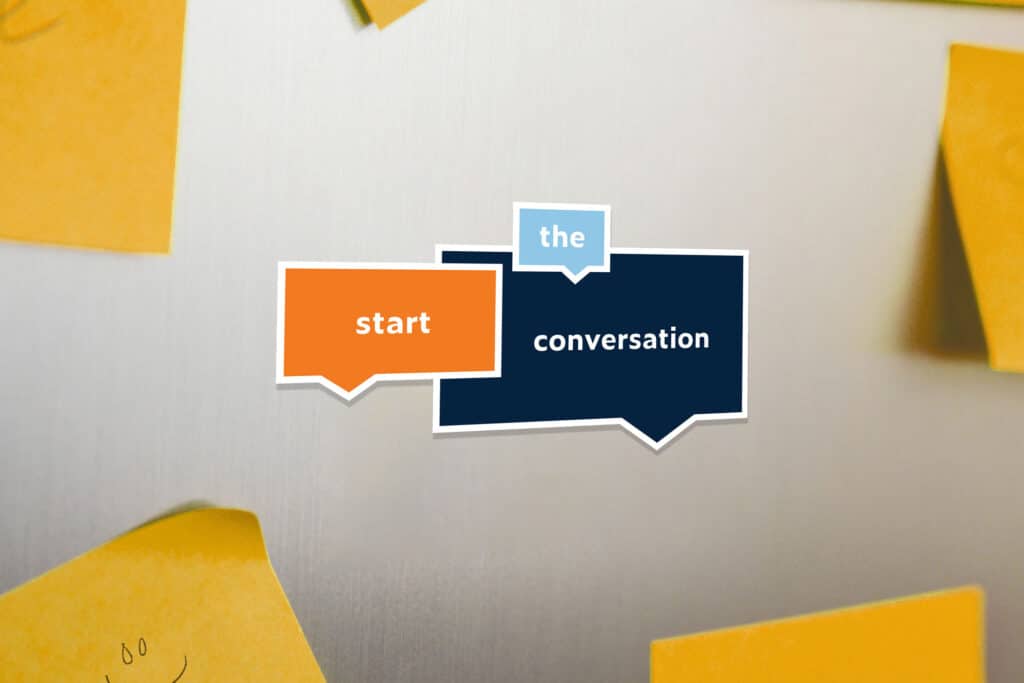Jason Maciejewski: (00:00)
Welcome to Inside the Senior Alliance, a podcast exploring resources and issues in the field of aging. I’m Jason Maciejewski, CEO of The Senior Alliance, the area agency on aging, serving Western and Southern Wayne County. Today I’m joined by Emma Olson, our Advocacy and Planning Specialist at The Senior Alliance. Emma, welcome to the podcast.
Emma Olson: (00:19)
Hi, Jason. Thank you for having me.
Jason Maciejewski: (00:19)
Yeah, it’s great to have you on the podcast today. We’re gonna talk about advocacy and how people can join us in our advocacy efforts. Emma, the 2021 legislative session just ended in Lansing and they were working on a supplemental budget appropriation for fiscal year 2022 that included American Rescue Plan Act funds for aging programs. And so services. You’ve been engaged in advocacy, focusing attention on this issue because the state legislature needed to approve a state budgetary match in order to draw down the federal American Rescue Plan Act funds. And once that match is approved, 42 and a half million dollars of American Rescue Plan Act funds can be released into the aging network. Part of the advocacy around getting that through the legislature was a consistent communication with our state representatives and our state senators about the importance of these dollars to the aging network and to older adults in Michigan. And much of that advocacy was done by email, but there are other advocacy strategies that we employ at various times as well.
Emma Olson: (01:22)
Yeah, there’s a lot of different ways to contact your legislators, via email letters, phone calls, social media in district coffee hours, town halls, and in-person meetings in Lansing,
Jason Maciejewski: (01:32)
Right. And this particular advocacy effort that we were doing around the ARPA dollars was really heavy on the email contacts, but there are five different categories of advocacy strategies that we really pursue.
Emma Olson: (01:44)
Yeah, you can create relationships with your elected officials, which can take some time. You can also lobby, which is an attempt to influence your legislation. On behalf of our organization, we do issue education where we research and educate ourselves and others on issues that are important regarding older adults. Coalition building, which we sit on the Silver Key Coalition, which is an organization in a group of individuals, which are committed to supporting and advocating for older adults. And there’s also outreach to media, which can be done by bringing attention and awareness to issues regarding aging in our community.
Jason Maciejewski: (02:16)
And with these strategies, we try and influence public policy, and the actions that we try and influence include things like changing laws and statutes, amending them, perhaps creating new ones, influencing executive orders that might come out from the governor’s office, administrative rules that come from departments or bureaus or administrative bodies within state government or the federal government. We try and have influence on regulations and operating standards. And for those of us in the aging network, operating standards are kind of the guiding principles for what we do with our aging-related programmatic dollars. They’re interdepartmental procedures and memoranda that we may be able to provide information on before they are issued by a particular department. Organizational guidelines as well that may come down from the state government. An even social norms of behavior, really framing issues in a way that people better understand maybe what aging is about or what older adults are experiencing in the community. So even kind of something really as soft as creating an understanding of the environment that older people are living in is important when we’re trying to do advocacy work.
Emma Olson: (03:23)
Yeah. With our advocacy, we are trying to accomplish a few roles, which are: advancing our mission and vision and cause at TSA, impacting our funding statutes and regulations, and building relationships, collaborations, or partnerships with others in the aging network.
Jason Maciejewski: (03:38)
And for us, that focus on mission is really key. Advocacy is a core function of what we do as an area agency on aging. The Older Americans Act really calls upon us to undertake advocacy as a foundational element of our work. And we do that with state government and federal government, but also at the county level and the local level, really trying to advance the idea of policies and laws that are beneficial for older adults and people who are aging. So for us, it’s a core thing in our mission as a nonprofit agency. So, we take advocacy very seriously and put a lot of effort into it. And, Emma, you do it every day in terms of your work at The Senior Alliance. But, what are some of the ways that people in the community, whether they’re stakeholders or older adults themselves—what can they do to help us achieve those goals in advocacy?
Emma Olson: (04:28)
First is a signup for a monthly advocacy newsletter called Colloque. And we have advocacy action alerts that we send out as well.
Jason Maciejewski: (04:33)
And you work on those advocacy newsletters, like you said, on a monthly basis and the advocacy action alerts are kind periodic, when there’s a need out there, a particular bill is moving, or an appropriations process is in a key moment. What is the email or phone number that people can call or send a note to sign up for those pieces of information?
Emma Olson: (04:53)
You can sign up for the Colloque at advocacy@thesenioralliance.org, or you can call (800) 815-1112.
Jason Maciejewski: (05:02)
And what about social media and how can people interact with us?
Emma Olson: (05:05)
Yep. We have a Facebook page where you can find us at The Senior Alliance. We have a LinkedIn and we have a Twitter, which the username is @AAA1C, where you can follow us and receive updates on what’s happening at The Senior Alliance. We also attend coffee hours and town halls as well.
Jason Maciejewski: (05:20)
Yes. Coffee hours and town hall meetings in legislator districts have been really important for us, especially pre-COVID. It was a big strategy for us to go meet with legislators while they were home in their districts, to give us an opportunity to really talk about particular issues in a little bit more relaxed environment. Then, it’s a strategy that we’re looking forward to getting back to in the year ahead because it’s a key moment for you to be able to talk to a legislator about a particular issue and maybe get five minutes of their time in a district environment to do that. I mean, we can also bring people to those coffee hours and town halls that might have particular interests, maybe they’re a subscriber to our monthly advocacy newsletter or a listener to the podcast. And we can encourage people to get out and talk about those issues that are important to older adults. Another way people can get involved is the Michigan Senior Advocates Council. And we did cover them in a previous podcast, but Emma, could you please explain Michigan Senior Advocates Council and your involvement with them?
Emma Olson: (06:19)
The Michigan Senior Advocates Council, also called MSAC, is a diverse group of leaders in the aging network who meet monthly across the state. We study different issues on aging. We visit elected officials to inform and discuss legislation regarding aging. And we receive updates on current aging issues in our state.
Jason Maciejewski: (06:36)
I think it’s great opportunity for people to be involved who have a little bit of time that want to engage with their legislators about a lot of different, important issues in our state. Let’s talk a little bit about communicating with legislators. You’ve written a number of letters and emails to members of the House and the Senate at this point, and we really try and structure those communications so they’re to the point and supported by people’s own experiences. But, could you talk about our strategy in terms of when we communicate with legislators?
Emma Olson: (07:07)
We focus our contacts by district and also by the staff of those elected officials through email or phone call, or like we mentioned earlier, during those coffee hours.
Jason Maciejewski: (07:18)
I think the staff is a really important piece here, especially when it comes to the federal legislators, your members of Congress and the U.S. senators. Getting to know the staff people, particularly those who work on specific issues, and for us that would be health and human service issues and appropriations issues, establishing communication with them and having a back and forth conversation as bills come up about Medicare or Medicaid or Older Americans Act changes. Having that contact on the staff side is really important for our advocacy efforts as somebody that we can reach out to, really any given day of the business week, to talk about something that is important for us at the area agency on aging because those staff people are a direct link to a particular member of Congress, and it’s really important to have those relationships. Same thing in Lansing is having a rapport with members of a state representative or state senator’s staff is really important. When you go on visits in Lansing, the opportunity to talk to staff and connect with them and build that relationship as well is really important. So, Emma, as we close out this episode of Inside the Senior Alliance, could you repeat one more time for us, how people can contact The Senior Alliance about getting involved in advocacy?
Emma Olson: (08:28)
Yeah. So, they can contact us via email or by phone. Our email’s advocacy@thesenioralliance.org. And the phone number is (800) 815-1112. You can also follow along to our Colloque and action alerts through the email as well. And again, the Colloque is just a short review of information on legislation and policy in the aging network.
Jason Maciejewski: (08:54)
Great. It’s a fantastic monthly resource for people who want that quick shot of what’s going on in our world. So, thank you for joining me today on the podcast, Emma.
Emma Olson: (09:01)
Thank you for having me. This is super great.
Jason Maciejewski: (09:03)
If anyone has questions about services or programs The Senior Alliance offers you can call us at 1-800-815-1112, or email us at info@thesenioralliance.org. Information about our agency or the programs and services we offer can be found on our website at www.thesenioralliance.org. On Facebook, we can be located by searching for The Senior Alliance. And finally, our Twitter handle is @AAA1C. I’m Jason Maciejewski. Thank you for listening to this episode of Inside the Senior Alliance.
Inside the Senior Alliance is a production of The Senior Alliance and Blazing Kiss Media.





